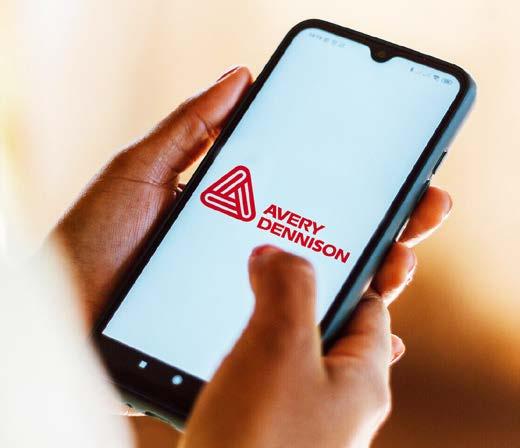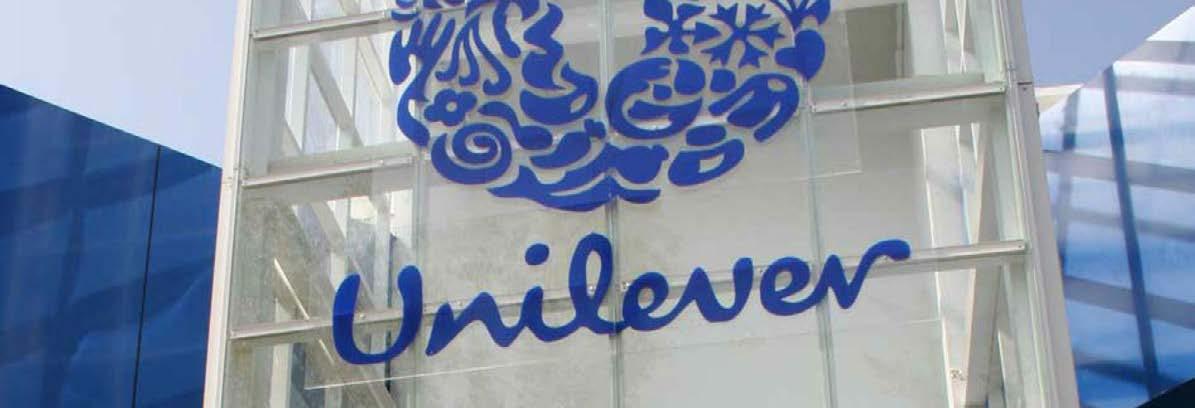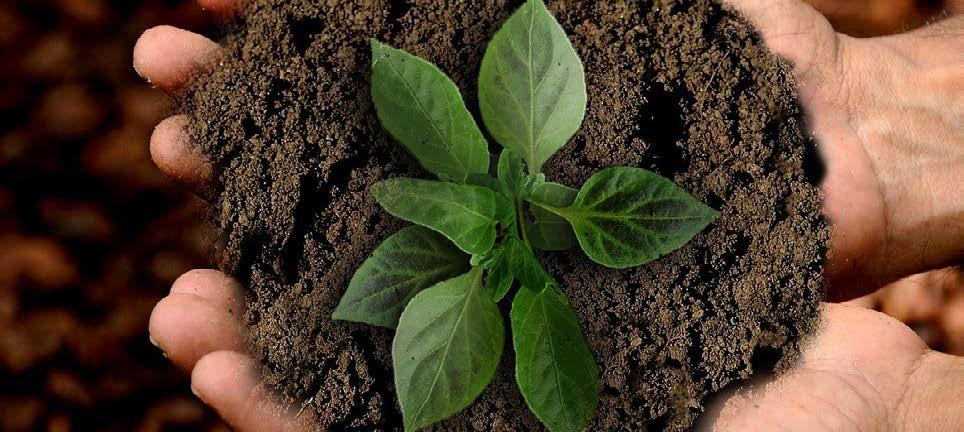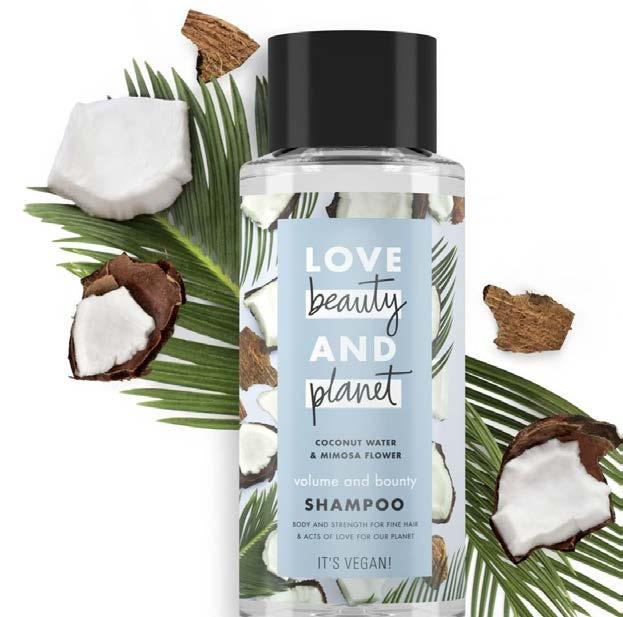
14 minute read
Amazon’s amazing vision
from SPN April 2021
by spnews.com
20-20 Vision Amazon’s amazing vision
Since Jeff Bezos founded Amazon in 1994 it has been a visionary force in global online shopping. This is not only in terms of its innovative retail shopping business model, but also in its dedication to protecting the planet. As most are aware, all figures relating to Amazon’s activities are off the scale. This is particularly true of its unparalleled contribution to sustainability and the circular economy, as Philip Yorke reports.
Advertisement
Amazon is based in Seattle, Washington State, and focuses on e-commerce, cloud computing, digital streaming, and artificial intelligence. It is considered one of the big five companies in the U.S. information technology industry, along with Google, Apple, Microsoft, and Facebook. The company has been referred to as “one of the most influential economic and cultural forces in the world”, as well as the world’s most valuable brand. In 2020 Amazon employed over 1.3 million people worldwide and in the same year, its two day delivery service ‘Prime’ exceeded 150 million customers. Currently the company’s global assets are valued at around $230 billion.
Prime packaging
When it comes to packaging, it is Amazon that sets the standards, and the pace. Bezos said, “Our customers want right-sized, recyclable packaging that minimises waste and ensures damage-free delivery. We work to reinvent and simplify our sustainable packaging options using a science-based approach that combines lab testing, machine learning, materials science, and manufacturing partnerships to scale sustainable change across the packaging supply chain”.
And it is not just in the field of packaging that Amazon excels. The company’s total renewable energy investments can be counted in hundreds of millions of dollars. As a result, the company is able to supply 7.0 gigawatts (GW) of electricity production capacity, which is enough to power almost two million households for one year. Amazon has also recently announced plans to add 26 utility-scale wind and solar energy projects, totalling another 3.4 GW of electricity production capacity, bringing its total investment in renewable energy in 2020 to 35 projects and more than 4 GW of capacity - the largest corporate investment in renewable energy in a single year. These new projects will make the company the largest-ever corporate purchaser of renewable energy.
Bezos added, “We have now invested in 7.0 GW of wind and solar projects that will enable the company to supply its operations with more than 18 million megawatt hours (MWh) of renewable energy annually. These projects will supply renewable energy for our corporate offices, fulfilment centres, and Web Services (AWS) data centres that support millions of our customers globally. They will also help advance our goal to achieve net-zero carbon emissions by 2040. Part of that commitment is powering Amazon’s infrastructure with 100% renewable energy, and we are now on target to achieve this milestone by 2025, five years ahead of our initial target of 2030”.
The 26 new wind and solar projects announced this year are located in Australia, France, Germany, Italy, South Africa, Sweden, the UK, and the U.S. The new projects are Amazon’s first in France, Germany, Italy, and South Africa. In the U.S., Amazon has now enabled wind and solar projects in California, Delaware, Illinois, Indiana, Kansas, Kentucky, Nebraska, North Carolina, Ohio, Texas, and Virginia.
The company has a total of 127 renewable energy projects globally, including 59 utility-scale wind and solar renewable energy projects, and 68 solar rooftops on fulfilment-centres and sort-centres around the globe.
Climate pledge promise
Last year, Amazon and Global Optimism co-founded The Climate Pledge, a commitment to reach the Paris Agreement 10 years early and be net-zero carbon by 2040. The pledge now has 31 signatories, including Unilever, Verizon, Siemens, Microsoft, and Best Buy. To reach its goal, Amazon will continue to reduce emissions across its operations by establishing a path to power its operations with 100% renewable energy and by purchasing 100,000 electric delivery vehicles, the world’s largest order ever of electric delivery vehicles. Bezos commented, “We are minimising waste, increasing recycling, and providing options for our customers to reuse, repair, and recycle their products, thus sending less material to the landfill and more back into the circular economy.
As customers and communities are adapting and adjusting to a new way of life amid the pandemic, sanitation and recycling. At Amazon, we appreciate the role that the sanitation and recycling systems play in keeping us and the planet healthy and safe. Despite the challenges that recycling has faced in recent years, Amazon believes in the long-term and in investing in our recycling systems. We will continue to find new ways to support the sustainable disposal of packaging and products as part of our commitment to The Climate Pledge of becoming net-zero carbon by 2030”.
Closing the loop on the circular economy
Amazon’s vision of a circular economy keeps its resources in use for as long as possible. In addition all the group’s companies are members of ‘The Recycling Partnership’, which is dedicated to improving recycling in the US and has invested over $10 million in the ’Closed Loop Infrastructure Fund’ to minimise waste and make it easier for customers and communities to recycle. Most recently, Amazon donated $100,000 to its Closed Loop Partners to be used to provide supplies during the pandemic to the brave men and women who are on the front lines of the sanitation and recycling industry. These organizations work with local governments, companies, and communities to improve recycling in neighbourhoods across the U.S. and have been working hard to provide assistance to areas struggling to adapt to changes in the recycling system.
“Amazon is committed to customers and communities across the country,” said Terese Kietzer, Senior Manager on Amazon’s Sustainability team. “We’re on a mission to ensure we’re using our size and scale to make a circular economy a reality across America and wherever we can have an influence. We’ve been working for years to reduce waste through better design and new services that delight our customers. By working with all these change-makers in the industry, we will be able to learn and apply new solutions to our own operations and in the communities we serve.” Amazon’s Frustration-Free Packaging also programs encourage manufacturers to package their products in easy-to-open packaging that is 100% recyclable and ready to ship to customers without requiring additional Amazon boxes. Since 2015, the company has reduced the weight of outbound packaging by 33% and eliminated over 900,000 tons of packaging material, the equivalent of 1.6 billion shipping boxes. Bezos had the final word, “At Amazon, we are committed to protecting our planet. But most importantly, it’s critical that everyone find a way to participate, and we are making this as easy as possible. Amazon customers, or anyone interested in recycling, can find out how to recycle all types of Amazon packaging and devices and shop refurbished or reused items by visiting our website”
Transparency
- the future for sustainability
With today’s consumers demanding more transparency concerning the environmental footprint of the products they consume, there is now a growing global demand for more sustainable packaging.
Transparency, a concept already gaining ground before the pandemic, has been galvanised by the rapid spread of the coronavirus, showing just how quickly change can be implemented if the need arises. According to Avery Denison, the global materials science company, consumers are also increasingly insisting on more transparency, with 70 per cent saying trust in a brand is more important now than in the past, according to recent research by Edelman.
As consumers learn more about how packaging waste, especially plastics, ends up in landfills and oceans, they want to know and understand where products came from and what their environmental footprint is .Eco-conscious consumers are increasingly aware of a product’s journey and the need to move from a linear to a circular economy, whereby products are designed to be reused, recycled or composted. Sustainable innovation is required in the packaging industry to enable a truly circular economy, and ultimately regenerative practices, to be achieved.
A powerful tool
A recent report by Avery Dennison, titled The New Transparency, underlines the importance of transparency as a powerful tool capable of giving businesses unprecedented control over their supply chains and environmental footprint, while offering consumers increased visibility, safety and education. It outlines ways businesses can offer a higher level of trust, including through digital identities, tracing and sustainable materials, within four category-specific microtrends: blockchain and analytical technologies, labelling, packaging and secondary waste. “First and foremost, consumers are demanding this information; they want to understand the environmental footprint and be able to trace the provenance and journey, in detail, of the products they buy,” says Renae Kezar, global senior director and head of sustainability at Avery Dennison. “But embedding transparency also serves to unlock more effective decision-making for businesses, increasing their resilience.
Avery Dennison is a global materials science company that specialises in the design and manufacture of labelling and functional materials. Its engineering solutions are sustainable in their own right and improve the sustainability of any value chain of which they are part.


Unilever
leveraging operations to fight climate change
Unilever has set out a new range of measures and commitments designed to improve the health of the planet by taking even more decisive action to fight climate change.
The global group will achieve Net Zero emissions from all its products by 2039. The company will also empower, and work with, a new generation of farmers and smallholders, driving programmes to protect and restore forests, soil and biodiversity. In addition, Unilever will work with governments and other organisations to improve access to water for communities in water-stressed areas.
To accelerate its climate control actions, Unilever’s brands will collectively invest €1 billion in a new dedicated Climate & Nature Fund. This will be used over the next ten years to take meaningful and decisive action, with projects likely to include landscape restoration, reforestation, carbon sequestration, wildlife protection and water preservation. The new initiatives will build on the great work that is already underway, such as Ben & Jerry’s initiative to reduce GHG emissions from dairy farms; Seventh Generation advocating for clean energy for all; and Knorr supporting farmers to grow food more sustainably.
Alan Jope, Unilever CEO, explains: “While the world is dealing with the devastating effects of the Covid-19 pandemic, and grappling with serious issues of inequality, we can’t let ourselves forget that the climate crisis is still a threat to all of us. Climate change, nature degradation, biodiversity decline, water scarcity, all these issues are interconnected, and we must address them all simultaneously. In doing so we must also recognise that the climate crisis is not only an environmental emergency; it also has a terrible impact on lives and livelihoods. We, therefore, have a responsibility to help tackle the crisis: as a business, and through direct action by our brands.”
Fighting the climate crisis
Unilever’s existing science-based targets to have no carbon emissions from our its operations, and to halve the GHG footprint of its products across the value chain, by 2030. In response to the scale and urgency of the climate crisis, the company is also committing to net zero emissions from all its products by 2039. This is from the sourcing of the materials we use, right up to the point of sale of in-store products.To achieve this goal 11 years ahead of the 2050 Paris Agreement deadline, Unilever must work jointly with its partners across the value chain, in order to collectively drive lower levels of greenhouse gas emissions. The company is therefore, prioritising the building of partnerships with its suppliers who have set and committed to their own science-based sustainability targets.
Jope added, “We believe that transparency about carbon footprint will be an accelerator in the global race to zero emissions, and it is our ambition to communicate the carbon footprint of every product we sell. To do this, we will set up a system for our suppliers to declare, on each invoice, the carbon footprint of the goods and services provided; and we will create partnerships with other businesses and organisations to standardise data collection, sharing and communication.
“The race to zero must be a collective effort, and business alone cannot drive the transition at the speed that is required. We call on all governments to set ambitious net-zero targets, as well as short term emissions reduction targets, supported with enabling policy frameworks such as carbon pricing”.
Regenerating nature
Unilever has been leading the FMCG industry on sustainable sourcing practices for over a decade, and are justly proud that 89% of its forest-related commodities are certified as sustainably sourced to globally recognised standards. However, to end deforestation, the company must challenge itself to achieve even higher standards. This means that it needs to have visibility on exact sourcing locations, and no longer rely on the mass balance system, which does not allow for accurate verification of deforestation-free when sourcing derivatives of its commodities. Unilever told SPN, In addition to continuing to drive sustainable sourcing and an end to deforestation, Unilever is setting out to help regenerate nature by increasing local biodiversity, restoring soil health, and preserving water conservation and access. To do this, it will empower a new generation of farmers and smallholders who are committed to protecting and regenerating their own farm environments. New initiatives will include securing legal land rights, access to finance and financial inclusion, and development of restorative practices.
This integrated approach will improve the livelihoods of smallholder farmers and give them leverage to drive the regeneration of nature. Unilever will also join the 2030 Water Resources Group, a multi-stakeholder platform hosted by the World Bank, to contribute to transformative change and building resilience in water management in key water-stressed markets, such as India, Brazil, South Africa, Vietnam and Indonesia.
Surpassing sustainable packaging goals
Unilever, owner of brands such as Dove, Seventh Generation and Magnum, continues to make progress towards its ambitious commitments for a waste-free world, despite the challenging environment created by Covid-19. Unilever’s commitments remain unchanged and the company has significantly stepped up its use of recycled plastic to surpass its sustainable packaging goals. Last year, Unilever became the first major consumer goods company to commit to an absolute plastic reduction across its portfolio.
By 2025, the company confirmed it will halve its use of virgin plastic by reducing its use of plastic packaging by more than 100,000 tonnes and accelerating its use of recycled plastic. Unilever continues to explore new ways of delivering products through its ‘Less, is better, no plastic framework.
Through ‘Less Plastic’ Unilever has explored new packaging formats, including recyclable Carte d’Or ice cream tubs made from paper, and Comfort expanded its ultra-concentrated fabric conditioner which has a 57% smaller dosage than any other product on the market. It requires less water to produce and needs less packaging, thereby saving resources and waste. In France, Signal has launched a toothbrush with a replaceable head. It uses a metal handle, PCR material in the replaceable heads and reduces virgin plastic by 95%.

Love, Beauty and Planet has launched concentrated shampoo and conditioners which provide the same number of uses as a regular sized bottle and use 50% less plastic. ‘Better plastic’ has also led to one of the world’s biggest beauty brands, Dove, move to 100% recycled plastic bottles where technically feasible in North America and Europe. Other brands which use 100% recycled plastic include: Hellmann’s recycled plastic jars and bottles in North America, pioneer sweet soy sauce Bango in Indonesia, and Sunlight Dishwashing Liquid in South Africa, Italy, Argentina, Indonesia, Vietnam and Thailand.
In Germany, Seventh Generation has launched bottles made from locally-sourced recycled plastic from Hamburg, where they are sold. In addition, Magnum will roll out 7 million ice-cream tubs made with food grade recycled plastic. OMO (Persil) is re-launching its liquid detergent with changes to its packaging and formulation to significantly reduce the environmental impact of the product. The new bottle is 100% recyclable, made using 50% recycled plastic. This launch is part of Unilever’s new ‘Clean Future’ commitment to lower the carbon footprint of their cleaning and laundry products.

Richard Slater, Unilever’s Chief R&D Officer says: “To tackle the root causes of plastic waste we need to think differently about packaging. We need bold innovations that challenge existing designs, materials and business models. Our priority is to fundamentally rethink our approach to packaging, and pave the way for new solutions such as reusable and refillable formats. By adopting a ‘test, learn and refine’ mentality, we’ve developed innovative solutions that will help people cut their use of plastic for good. “One product doing just that is our ultra-concentrated formula for OMO which is diluted at home and uses 72% less plastic. “After a successful launch in Brazil, we’re now rolling this out in other countries across Latin America, Europe and the Middle East. Similarly, our Cif Ecorefill started out as a pilot in the UK and has since been rolled out across Europe, Canada and Australia.
It’s still early days. But by making refill and reuse formats more widely available, accessible, and affordable, we hope to use our scale and reach to drive lasting change.” SPN will continue to monitor and support the major contribution that Unilever is making towards global sustainability and the circular economy.

